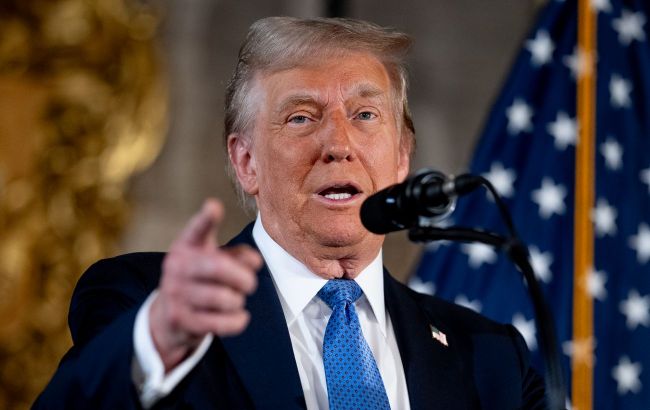Trump slows down tech export limits to China — FT
 Photo: US President Donald Trump (Getty Images)
Photo: US President Donald Trump (Getty Images)
The Donald Trump administration has effectively suspended new restrictions on technology exports to China. This is to avoid complicating trade negotiations with Beijing, according to the Financial Times.
This has caused concern among national security experts, who believe that such a move undermines the US position in the field of artificial intelligence.
The US has postponed new restrictions on chip exports to China. The decision was made amid attempts by the Trump administration to establish a trade dialogue with Beijing and secure a face-to-face meeting with Chinese leader Xi Jinping before the end of the year.
According to the agency's sources, the Bureau of Industry and Security (BIS) at the US Department of Commerce has received direct instructions in recent months to avoid tough decisions on China.
Trump, according to sources, is trying not to complicate the negotiation process and not to provoke Beijing into taking retaliatory measures, in particular, restricting exports of rare earth materials.
Conflict over H20 chip
One of the most controversial episodes was the position on the H20 chip developed by Nvidia for the Chinese market.
In April, Trump's team threatened to block its export, but then changed course after lobbying by Nvidia CEO Jensen Huang.
National security experts noted that the H20 chip outperforms even the flagship H100 in data output functionality, which is critical for military technologies, including autonomous weapons and surveillance systems.
The US is holding back on its export restrictions to avoid a diplomatic conflict, but this could lead to an increase in China's technological capabilities in critical areas, particularly artificial intelligence.
This decision has been criticized by Steve Bannon and many of Trump's former strategists, who consider it a concession to the profits of large corporations at the expense of US security.
What's next
The third round of trade negotiations between the US and China is expected to take place in Stockholm on Monday.
Washington hopes that softening its export policy will bring Trump's planned meeting with Xi Jinping closer.
Meanwhile, the Department of Commerce has not yet announced the final restrictions on H20, although the BIS continues to consider adding new Chinese companies to the blacklist.
Trump's representatives insist that decisions on each transaction with H20 will be considered individually, taking into account the national interests of the US.
Trump's tariffs against China
On April 2, 2025, US President Donald Trump announced that he would impose tariffs on goods from all countries of the world.
On April 9, Donald Trump put a pause on customs tariffs for a number of countries, except China. The US president said that countries must conclude trade agreements with the US within 90 days.
On May 12, the US and China announced that they had agreed on a 90-day trade truce.
In addition, a US trade court blocked Trump's tariffs on other countries. The court ruled that he had exceeded the powers granted to the US president by the International Emergency Economic Powers Act of 1977.
US President Donald Trump has been increasing pressure on China in an attempt to block export bypass routes through third countries.
At the same time, Nvidia CEO Jensen Huang called on the US to ease restrictions on chip exports to China.
However, the Trump administration continued its efforts to prevent advanced technologies from falling into Beijing's hands.

